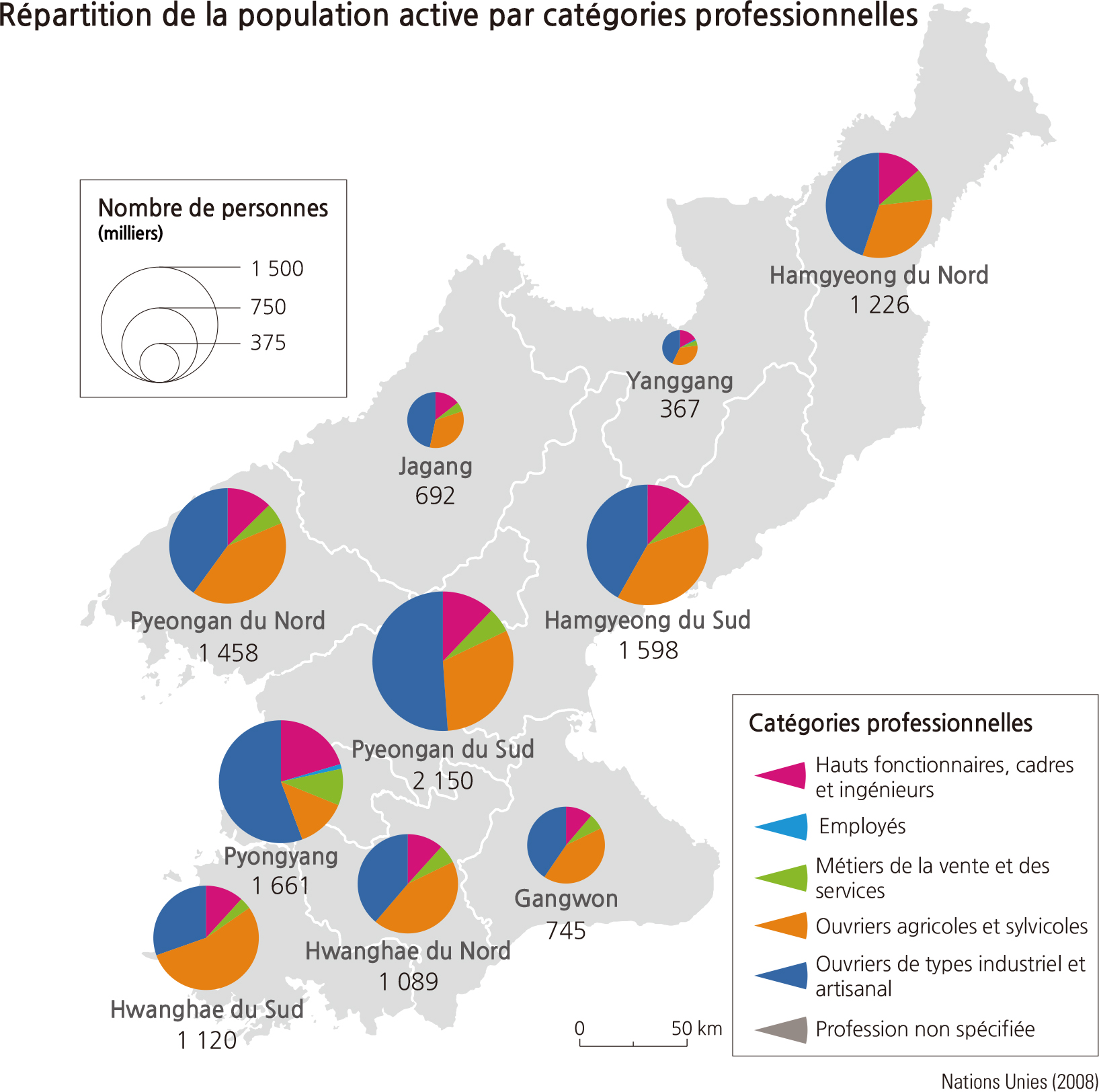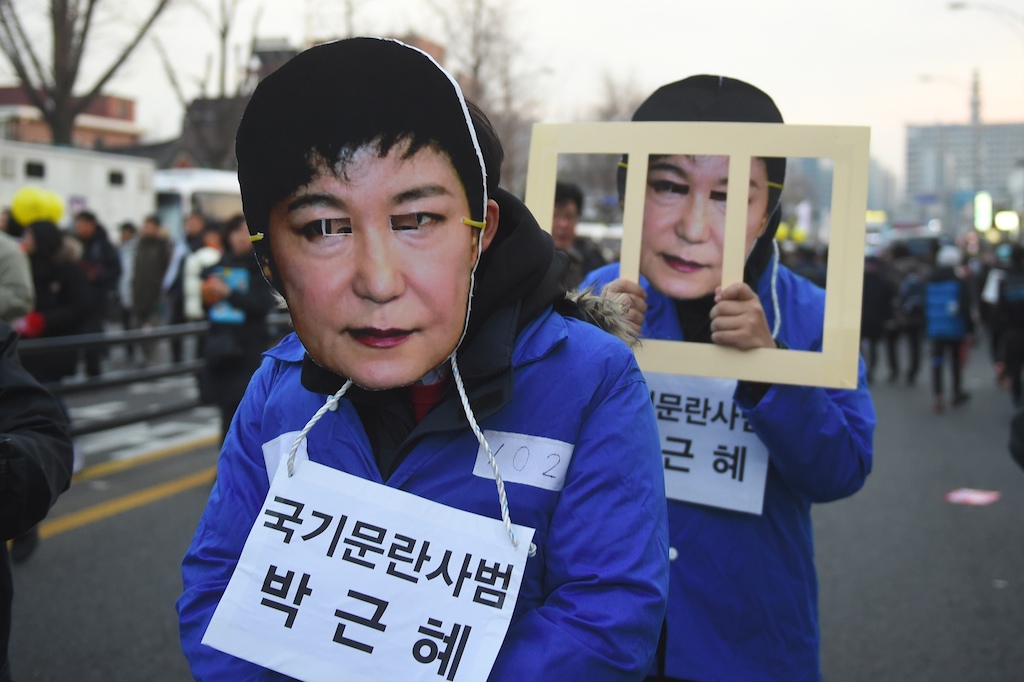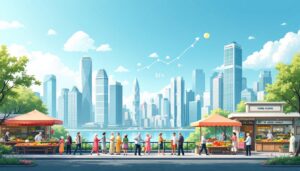There South Korea, often perceived through the prism of its technology and its pop culture, is also at the dawn of a major transformation with the emergence ofsenior economy. As the population ages rapidly, the country is committed to reassessing and revitalizing the role of older adults in society. This change is not only a social necessity, but also an economic opportunity to be seized. By leading the way in inclusion and innovation, South Korea could well become a role model in this new era, challenging traditionally negative stereotypes and perceptions related to seniors.
While South Korea is known for its technological advancements and vibrant culture, the nation finds itself at a crucial crossroads amid a growing demographic challenge. The often-neglected senior economy is taking center stage as the country seeks to reinvent its economic model to include older people. Today we will explore how South Korea is committed to valuing its elders and transforming the perception of this group often considered a social burden.
Table des matières
ToggleAn aging population
South Korea is facing a rapid aging of its population. It is estimated that in the next 50 years, the country could lose a third of its inhabitants source. This phenomenon, combined with a low birth rate, requires urgent reflection on how to support an aging population. The country must adapt and find innovative ways to integrate its seniors into the labor market, thus allowing them to contribute to society and the economy.
The economic challenges of seniors
In South Korea, nearly 40% of elderly people live below the poverty line source. This raises fundamental issues regarding financial support and recognition of the skills that seniors can provide. Despite their desire to value oneself in a constantly changing environment, they face economic obstacles, limiting their ability to actively participate in society. Society must therefore change its perception of its elders, considering them not as burdens, but as invaluable resources.
Silver Economy: a growth boon
The Silver Economy, which encompasses all goods and services for the elderly, represents a unique growth opportunity for Korean businesses. With the development of technology and the rise of start-ups, South Korea can benefit from a dynamic senior population that demands suitable products and services. Many initiatives are emerging to meet these needs, ranging from healthcare solutions to leisure services, creating a promising market just waiting to be tapped source.
Keeping seniors in the job market
To face the looming demographic crisis, the South Korean authorities are seeking to encourage seniors to remain active in the job market. This requires public policies promoting the employment of older people, as well as continuing training programs to rehabilitate their skills in a rapidly changing professional world. While it is essential to reintegrate these experienced workers, this approach must also be accompanied by a societal desire to change the perception of older people within the company. source.
Examples to follow
Other countries, such as China, are also starting to develop their Silver Economy. In China, initiatives such as transforming kindergartens into retirement homes show how different models can be adopted to meet the needs of seniors while promoting economic development source. These examples demonstrate that South Korea must fully commit to this path to become a model for the integration of older people, both economically and socially.
The future of seniors in South Korea
South Korea is at a turning point where it must rethink its approach to seniors and their contribution to the economy. By promoting an inclusive and energizing vision, the country can transform the perception of its elders and make them key players in a new prosperous and united economic dynamic. To succeed, this will require the commitment not only of governments, but also of businesses and civil society to create an enabling environment for this transformation. Collaboratively, South Korea can build a society where seniors are not only accepted but celebrated for their invaluable value.

South Korea, known for its technological advancements and innovation, is at an important turning point in its demographic history. Faced with an aging population, it must seize the opportunity to develop the senior economy. This initiative aims not only to improve the quality of life of older people, but also to fully integrate them into society. By turning challenges into opportunities, South Korea can harness the potential of seniors to strengthen its economy.
Understanding the demographic landscape
The good life in South Korea is often highlighted, but a more difficult reality emerges: nearly 40% of elderly people live in poverty. This alarming finding highlights the need to act quickly. By implementing policies promoting integration of seniors in the labor sector, the country could begin to reverse this trend. It is therefore essential to fully understand the demographic landscape in order to meet the needs of this population.
Innovate to support seniors
THE technology field is a powerful lever to improve the lives of older people. New solutions can be developed to make their daily lives easier, such as applications dedicated to health or platforms for connecting seniors and businesses. Initiatives like those of Hessa Bint Essa Buhumaid, which promotes the potential of the silver economy, could serve as a model for innovation in South Korea. More information can be found on this here.
Promote education and continuing training
For seniors to play an active role in the economy, it is crucial to offer them training opportunities. Adapted education programs could enable older people to develop new skills and remain dynamic in the labor market. A survey of the challenges and opportunities of aging reveals how continuing education is essential to ensure healthy aging. Discover other insights you can connect to by watching the survey here.
Reinventing the healthcare sector
The aged care sector must also evolve to better meet their needs. The creation of suitable living spaces, combining well-being And modern technology, can transform the senior experience. Beyond medical care, special attention must be paid to the loneliness and psychological well-being of these people. THE silver dividend of South Korea could thus prove to be a challenge transformed into an opportunity. For more details on this topic, you can consult this article here.
Explore international markets
South Korea must also keep an eye on international opportunities which may arise in the field of the senior economy. By learning from the experiences of other countries, such as Singapore, which are exploring this market in Tianjin, Korea can develop innovative strategies. International models provide a framework for removing barriers and integrating seniors more effectively into the Korean economic fabric. More information on this topic is available here.
#France2030 : 4 lauréats ont été sélectionnés lors de la première relève l’appel à projets « ECONUM – Soutien au développement d’une économie numérique innovante, circulaire et à moindre impact environnemental ».
— Ministères Économiques et Financiers (@Economie_Gouv) July 11, 2024
Plus d'infos : https://t.co/7bha9yemqd pic.twitter.com/uDpU3oR8yD
South Korea finds itself at a crucial turning point, facing a demographic transformation that is pushing us to reconsider the role of seniors in society and the economy. As the country prepares to overtake Japan as Asia’s leader, it must seize this opportunity to embracesenior economy. By leveraging innovations and an inclusive vision, South Korea could not only revitalize its labor market, but also establish an inspiring economic model for other nations.
Redefining the perception of seniors
In Korean society, older people are often seen as social burden. To begin to change this narrative, it is imperative to promote the skills and experience of seniors. This could include developing programs that showcase their expertise through workshops, training, and mentoring opportunities. Companies should also create more favorable hiring policies to integrate more older workers into their teams.
Promoting inclusion in the labor market
Faced with an imminent demographic crisis, South Korea must adopt incentive measures aimed at encouraging active retirement and keeping seniors in the job market. Initiatives such as subsidies for companies that hire older workers or specific training focused on their needs can promote their integration. Meaningful employment is essential not only for the well-being of seniors, but also to contribute to a dynamic economy.
Harnessing the potential of the silver economy
L’silver economy represents a huge growth opportunity for South Korea. By encouraging companies to develop services and products specifically aimed at seniors, it is possible to create a thriving market. Consider innovations in health, well-being and leisure that meet the needs of older people while promoting independence and quality of life.
Support a culture of innovation
To fully realize this potential, government and the private sector must work together to encourage innovation. This could happen through start-ups dedicated to the senior economy, which can provide innovative and adapted solutions. In addition, the creation of incubators and specific funding for innovative projects in this area would be a real boost. These initiatives would not only improve the quality of life of elderly people, but also give rise to new economic dynamics.
Expand access to tools and technologies
One of the key factors for boosting the senior economy lies inaccess to technologies. It is essential that older people are trained in the use of digital tools. Raising awareness and training seniors in the use of new technologies would allow them to better participate in modern society and access essential services. In addition, the adaptability of technologies to the needs of seniors must be prioritized by technology companies.
Create education and awareness programs
This involves the creation of targeted educational programs for older people, as well as awareness campaigns that facilitate their integration. These initiatives should aim to bridge the digital divide, encouraging seniors to use online platforms to access services, make purchases, and even connect with others. By promoting thedigital inclusion, we strengthen their autonomy and respect their dignity.
At the dawn of this transition to a more inclusive society, South Korea has the opportunity to transform its perception of older people and make the most of the senior economy. By redefining their role and implementing targeted strategies, the country can not only face demographic challenges, but also position itself as a model for other nations.








